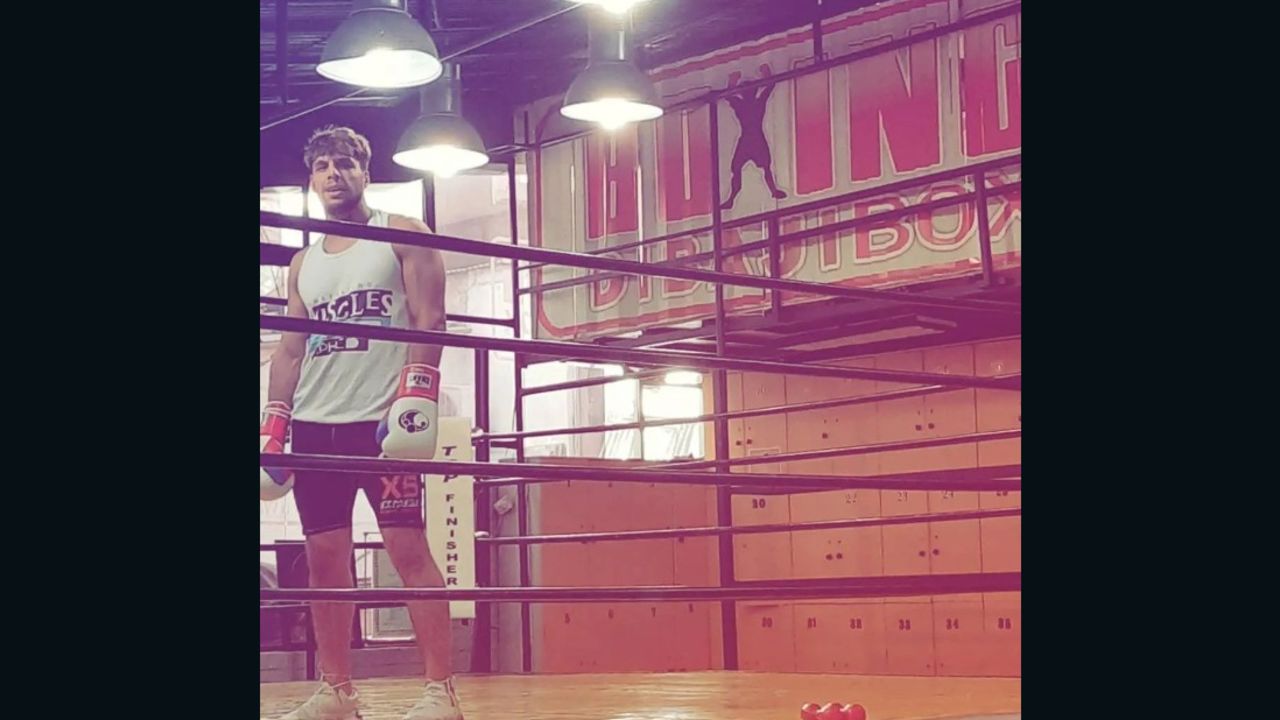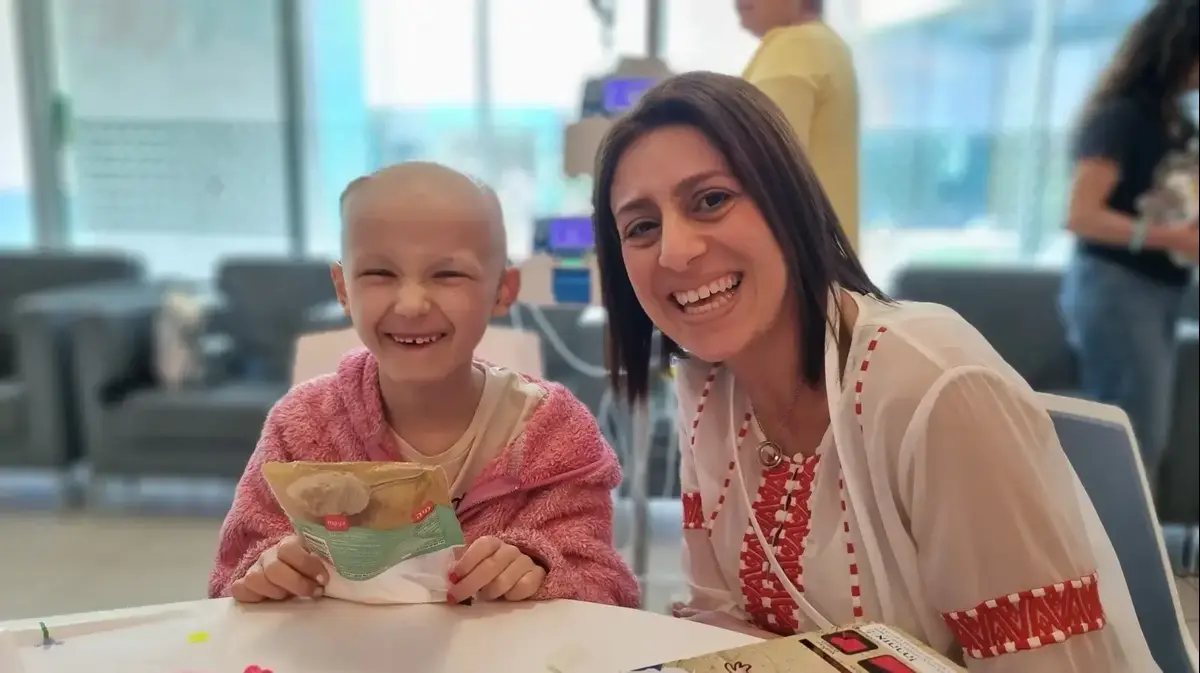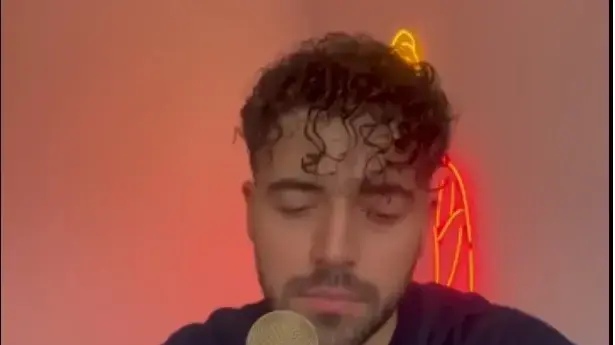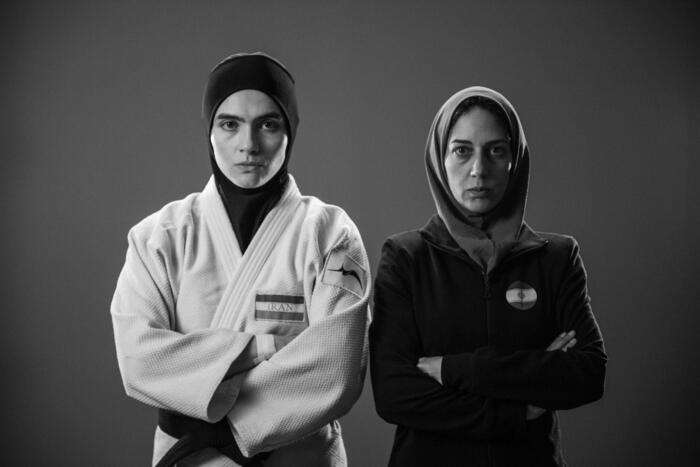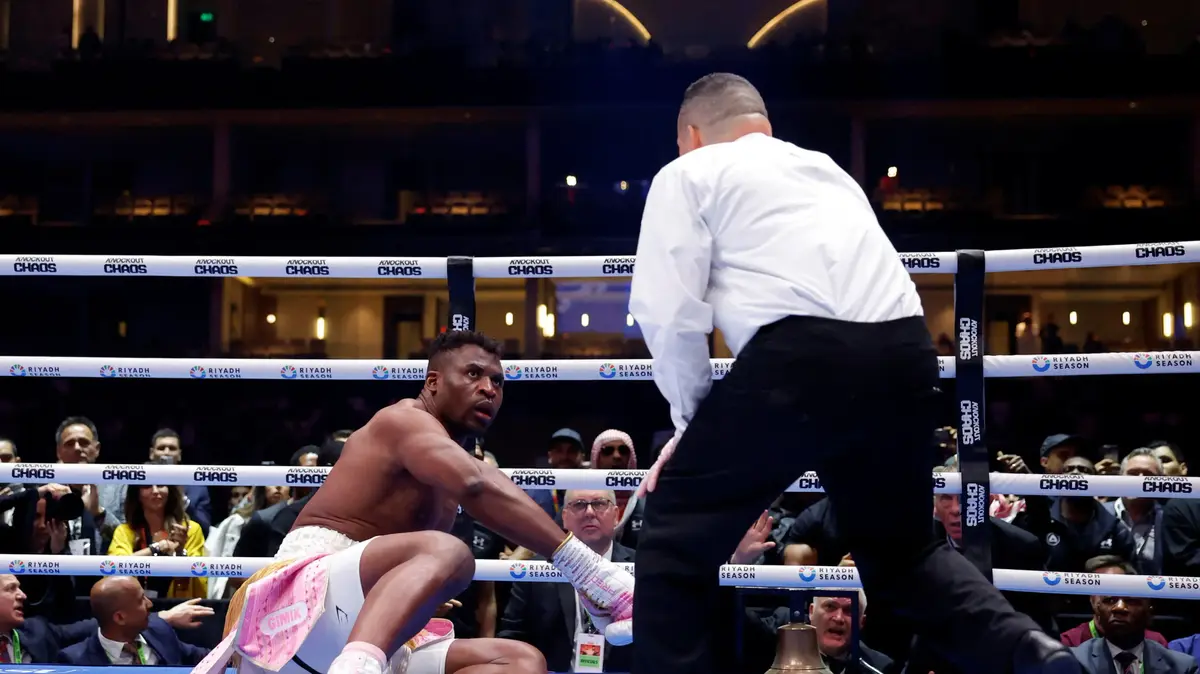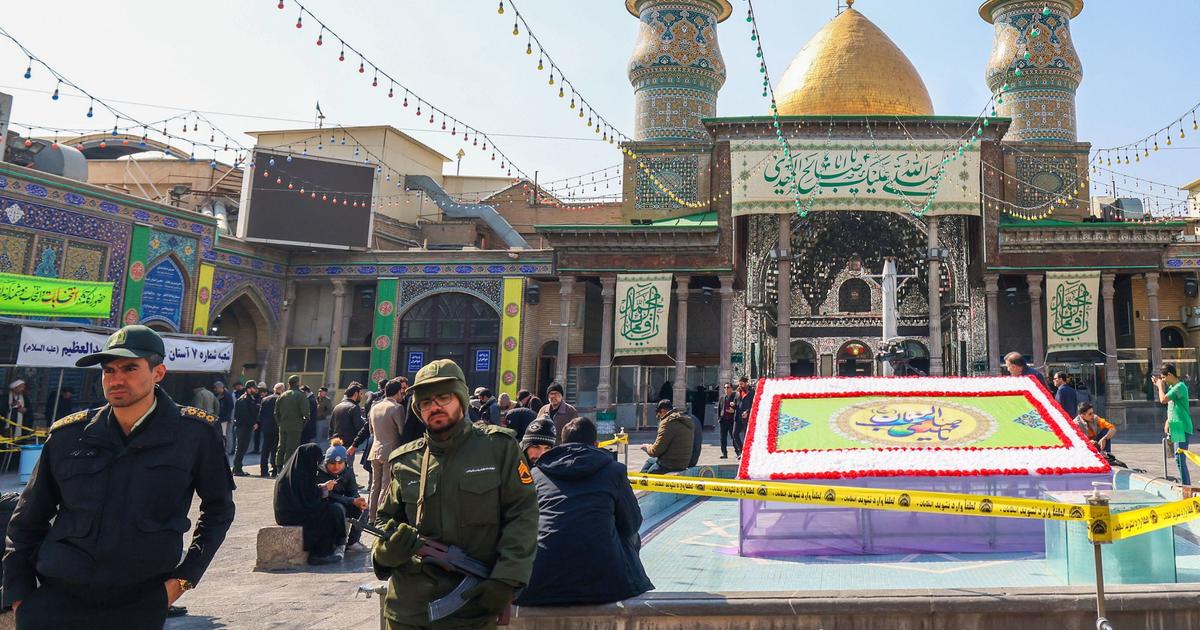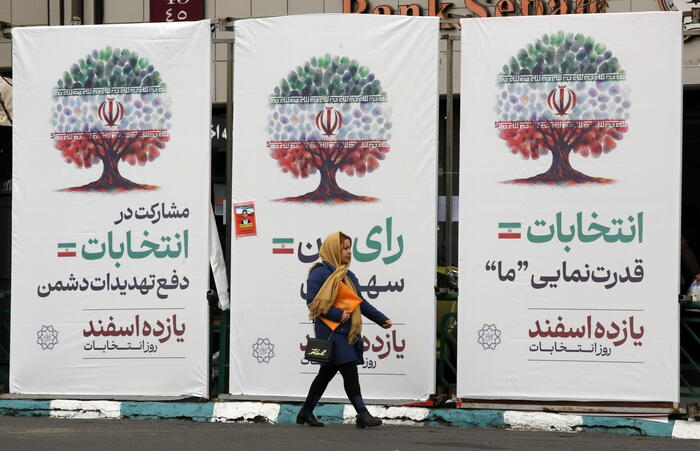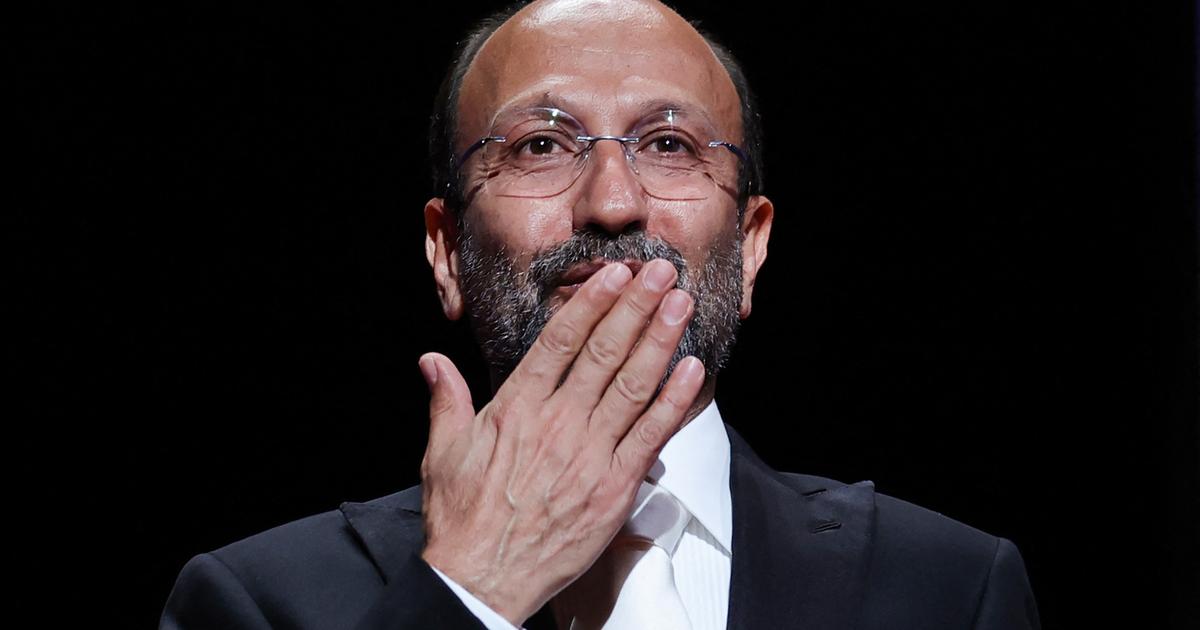Iran executes 2 other protesters and sentences 3 to death 3:29
(CNN) --
The video instantly went viral: Cellphone footage taken at anti-government protests in the Iranian Kurdish town of Sanandaj showed a topless man brandishing a knife, surrounded by a dozen of regime forces armed with pistols.
Security officers appeared to take turns cautiously brandishing their batons at the protester, some even firing their weapons at him, jumping from side to side with each thrust he made.
In the end, the protester fell to his knees after being shot several times at point blank range.
It was the first time the world saw Ashkan Morovati, an Iranian Kurdish boxer who has since become a hero to supporters of the Iranian protest movement.
Iran executes karate champion and volunteer children's trainer amid crackdown on protests
In an exclusive interview with CNN, Morovati explained the story behind the video, recorded in late October.
In the moments before the confrontation seen on camera, he addressed the security forces and asked them to act more calmly in the face of protesters calling for an end to the country's ironclad clerical regime.
advertising
"I went there to tell them to support the people and commit to it," Morovati told CNN.
"They are ruthlessly suppressing people and this is unworthy of humanity."
However, as he made his way towards them, security forces attacked without warning, using pepper spray, batons and ultimately shooting him, according to Morovati.
He says that he only pulled the knife from him in self-defense, though to no avail.
"I was shot with a shotgun from very close and then shot twice with military-type rounds in both legs."
Iranian authorities did not respond to CNN's request for comment.
Morovati was arrested and later charged with "waging war against God" or "moharebeh", a charge that carries the death penalty and has been used repeatedly by the Iranian regime to prosecute political protesters in the country.
The ordeal could have cost him his life.
Instead, it led to a daring escape from Iran.
Ashkan Morovati trains in the boxing ring.
Courtesy of Ashkan Morovati
cling to life
Iran's national uprising convulsed the country when it began in mid-September, posing the biggest internal threat to the clerical ruling class in more than a decade.
The mass protests penetrated the regime's conservative support base and produced countless acts of defiance, and sometimes violence, against the formidable Basij, a volunteer paramilitary group that is the fulcrum of the Islamic Republic's security apparatus.
The protesters were young and angry, and a barrier of fear seemed to have been broken.
But four months later, a mounting wave of crackdown on protesters, including dozens of death sentences handed down against demonstrators, has dampened Iran's protests, if not the popular anger behind them.
The recent death sentences are the culmination of an increasingly violent crackdown that includes the shooting deaths of protesters, mass arrests, physical assaults and sexual violence.
Morovati himself claims that he "died" many times before finally escaping from Iran.
He alleges that the regime forces mistreated him even after his arrest, beating him and even shooting him again, until they were sure he would not survive.
"When they were taking me to the hospital, they shot me from very close with a shotgun, as if it were a coup de grace," explains Morovati.
He believes that the agents only took him to the hospital because they were sure that he would die.
But he survived.
At Sanandaj's Kowsar Hospital, he was taken to the Intensive Care Unit and treated by several doctors, including surgeon Iman Navabi.
As Morovati explained to CNN, doctors at the hospital told him that he had a severed artery in his leg, a lung punctured with pellets and had about 200 more pellets in his body, some of which had caused serious injuries.
Although his condition was serious, he miraculously pulled through.
"Are you 100%? Open your eyes," Navabi said in a video posted on his Instagram showing Morovati after the operation.
Navabi was standing next to Morovati, whose feet were dangling over the front of the stretcher due to her large stature.
Her parents, visibly concerned, were sitting next to her in hospital gowns.
"Ashkan Morovati is doing well, the operation has been a success, his condition is stable, he is out of danger, he is in ICU tonight and there is nothing to worry about," Navabi wrote in the caption of his video.
Many Iranian doctors and health workers have been detained as punishment for providing medical treatment to protesters, and after treating Morovati, Navabi himself was detained in early December, according to the Norwegian-registered Hengaw Organization for Human Rights.
He was subsequently released, according to Canadian parliamentarian Terry Beech.
The Kurdish boxer, who had previously been seen weight training, punching and sprinting in videos posted to his social media accounts, spent nearly a month in a hospital bed recovering.
Why are there protests in Iran?
What happened to Mahsa Amini?
Then, according to him, the regime forces stormed the hospital and dragged him out in the early hours of November 23.
"About 10 plainclothes officers came along with about 20 armed soldiers who had totally taken over the hospital, and they took me out of the isolated ICU ward," Morovati said, describing the scene.
"They had a court order to shoot anyone who came close to interfering and they took me to prison under those conditions."
He was taken to prison, where he says he experienced excruciating agony from his gaping wounds.
In jail, Morovati no longer received continuous oxygen or had his wounds changed as frequently as in the hospital;
prison staff ignored her cries of pain, she says.
"I had to find salt and put it on the wounds to disinfect them a bit," Morovati says of his nearly 10 days in prison.
"They didn't pay any attention to my condition."
He trusted his fellow prisoners to share their painkillers.
After 10 days, at the insistence of his family and pressure from Kowsar hospital doctors on the judiciary, prison staff agreed to provide Morovati with medical treatment by transferring him to an army hospital.
"I was there in those conditions, with my hands and feet chained to the bed," Morovati says, describing her six-day stay at the center.
He says that the army doctors thought he was dying and suggested that he be transferred to a better equipped hospital to treat him.
Once again, at the urging of family and pressure from doctors, Morovati was granted a pardon.
"They gave me 20 days to transfer me to a well-equipped hospital," he says.
It was during this time that the judiciary accused him of being “moharebe”, without hearing or questioning.
And that was precisely the time that Morovati took advantage of to undertake the great escape from him.
Iranian Kurdish boxer Ashkan Morovati says he spent nearly a month in hospital after being beaten and shot by Iranian regime forces.
Courtesy of Ashkan Morovati
miracle exhaust
Rather than go to a hospital, Morovati fled the country, traveling by land.
"I left the country through mountains and deserts bleeding heavily and in very, very bad shape," Morovati says.
With the help of friends, he says he is now in a safe place, in an undisclosed location outside Iran's borders.
"Many people in Iran are dying to get out of the country and tell the world the truth," Morovati explains.
"Our only crime is that we demand freedom and democracy and we want our women to be equal to our men. We shout 'Woman, life, freedom': that is our crime."
He beheaded his wife in Iran.
Her punishment of him?
Eight years and two months in prison
Asked if Iranians are afraid in light of the ongoing crackdown on protesters, Morovati disagrees, citing a popular slogan used by protesters: "For every person who dies, there are a thousand people supporting them."
"I don't think people are afraid," Morovati says.
"People are still standing up bravely and [will] still be standing up bravely."
Morovati has yet to receive medical attention since her escape and says the leg where she received the bullet wound is numb, but she manages.
He affirms that it is very painful for him to accept that he will not be able to dedicate himself to boxing professionally after his injuries, but that his hopes are now set on a different destiny.
When asked about his safety and the physical pain he is feeling, Morovati is quick to reply that he does not feel safe and that he is in pain.
He is quick to add that "the most important thing for me right now is the liberation of Iran."
"I will give my life for my people, for my Iran, not once, but a hundred thousand times," he adds.
-- Journalist Omid Shams contributed to this report.
Iran

